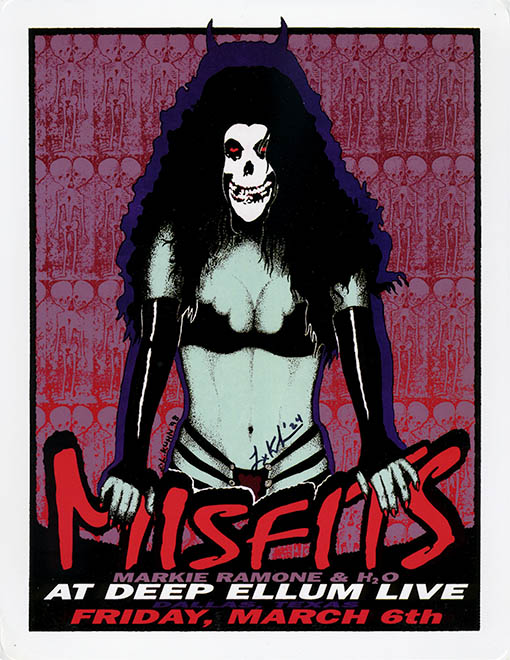
Tommy's Heads Up Saloon, 1987
In an earlier life, the building that would eventually become Deep Ellum Live served as the warehouse for an auto parts distribution company. Advertisements in the Dallas Morning News from 1978 and 1979 carried solicitations for a "man with some parts experience to train for counter sales" and a "man for order filling, stocking, etc." Also sought was a "driver with clean record." Fast forward to 1987, and the now empty structure, like its surrounding properties, was ripe for re-utilization and conversion into something befitting an ever expanding musical district. Word at the time was that the Canton Street corridor was a dead zone for entertainment and nightlife, with all the excitement being centering on Elm, Main, and Commerce Streets. Nevertheless, a group of investors led by former oilman-turned-developer C. Edgar Sherrill and restaurateur Richard Chase commenced an ambitious plan to bring some of the burgeoning Ellum nightlife southward. As part of a larger, more expansive project known as "Near Ellum," the erstwhile warehouse was to be refashioned into a more modern country and western themed dance hall. Named for Tommy Allsup, long time western swing performer and a former member of Buddy Holly's Crickets, the venue was envisaged as an toe stepping island in a sea of punk and rock oriented joints, with the plan being to feature live music five or six nights per week and to showcase bigger "name" and national acts on the weekends. Allsup himself, an investor and partner in the venture, would also occasionally grace the stage to serenade patrons with support provided by his own backing band. A pre-launch private party even featured a literal ten foot tall cowboy hat and boots fashioned by noted local artist Bob Wade.
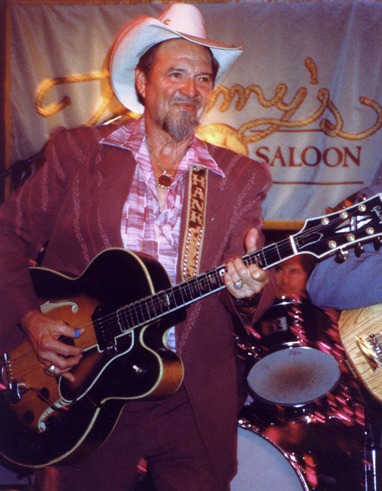
Tommy's Deep Ellum, 1988-1989
No sooner had the Heads Up Saloon gone under than developer Sherrill began casting about for a new operator. Sherrill, having no intention of giving up on the nightclub component of his Near Ellum concept, ultimately retained restaurateur and night club operator Ellen Grant to take over the space. Keeping the main portion of its predecessor club's name intact, Tommy's Deep Ellum, aka Tommy's, officially opened for business in January 1988. Gone were the failed country-western stylings in the reincarnated club, which pivoted away from honky-tonk in favor of something a bit more in line with the neighborhood's rock-oriented sensibilities (Adair's would eventually fill the vacuum for country music in Deep Ellum, beginning with the installation of its first stage four years later). In place of the country and western swing were acts such as Princess Tex, The New Bohemians, Johnny Reno & The Sax Maniacs, Domestic Violence, and The V-Suckers, who were the first act to play what Nervebreakers alumnus Barry Kooda once called the "tallest stage in town." Attendance on the first night may have been sparse, but the larger crowds would eventually come, buoyed along by owner Grant's singular focus on promoting live, local talent and original music.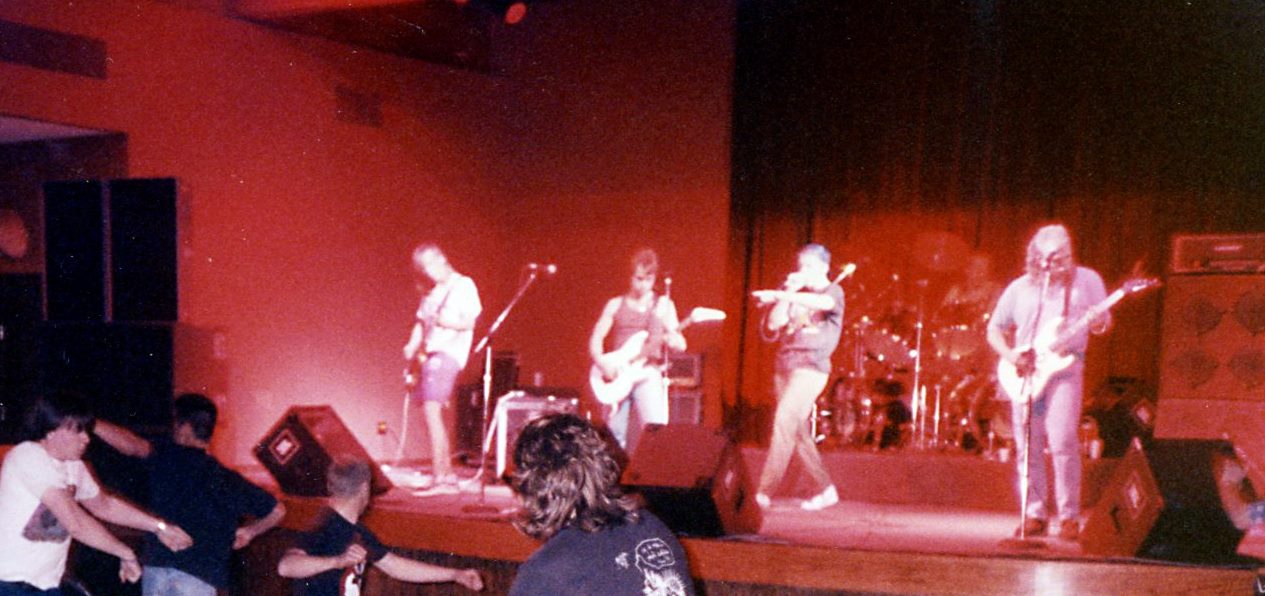
By all accounts, the newly rechristened Tommy's Deep Ellum was a success, winning local artist support and soon garnering major national talent, who in turn drew decent sized crowds into the venue. Notable "name" acts who passed through Tommy's included such luminaries as The Pogues, Mother Love Bone, Tracy Chapman, The Stray Cats, and Jane's Addiction, and a number of more classic acts such as The Guess Who also played the venue. The pivot away from the saloon and dance hall concept proved to be successful, but as before, the success would be short-lived. 462 Concerts was bringing in the alternative rock and major label acts, but owner Ellen Grant eventually found herself unable to continue operation of the club. In August of 1989, she departed from Deep Ellum and returned to her native Connecticut to handle some family affairs, putting her stake in Tommy's up for sale following a benefit show with comedian Dennis Miller.
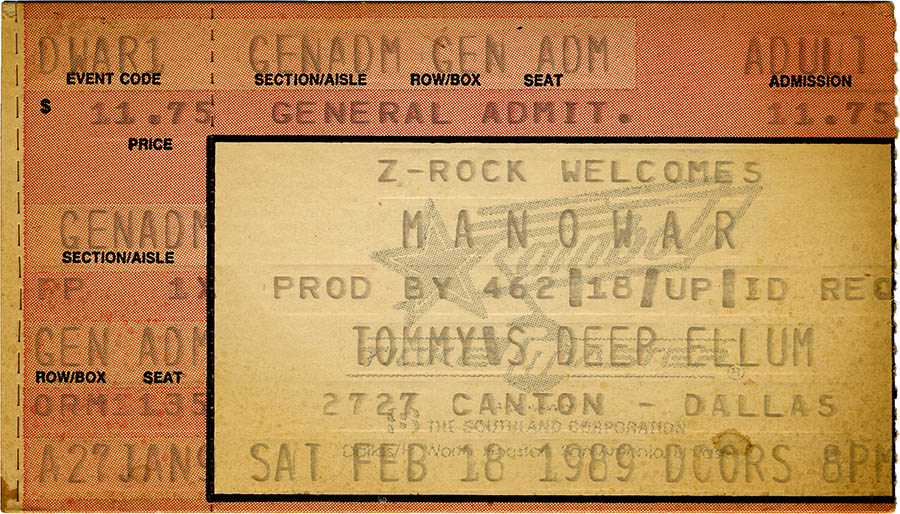
The Venue, 1989-1990
With the final closure of Tommy's, 2727 Canton Street was targeted by Club Clearview investor/partner Jeff Swaney as a potential addition to his portfolio of Deep Ellum music properties, holdings which also included Club Clearview and the Art Bar. The Venue, debuting in July of 1989, was the brainchild of Swaney with investment from Lee Rhoden, the president of Dallas-based Seabrook Computers. During its run, the club played host not only to homegrown, local talent such as Hash Palace, Three on a Hill, and Wake Up Screaming, but also to a number of successful national acts including The Pixies, Soundgarden, Ministry, DEVO, and the Meat Puppets. Yet this club too, like its predecessors, would eventually fall victim to the Canton Street jinx. While Swaney had years of experience in the Ellum live music business from which to draw, Rhoden had no such experience, and while Rhoden put up the money as the major investor and silent partner expecting to rake in the profits, he soon withdrew his funding in favor of other, better opportunities once the club underperformed expectations. The Venue closed for good following a performance by the New Bohemians on April 12, 1990, only nine months after it first opened. According to a Dallas Morning News article2 published two weeks after the closure, rumor had it that the club had overbid when attempting to attract national acts. This rumor were denied by Swaney, who attributed the Venue's financial problems to its location on Canton Street. As had already been recognized with the Near Ellum project, the area lacked the foot traffic and appeal of Deep Ellum's three main thoroughfares to the north. Ultimately, the audience draw of the acts booked to play The Venue, despite those acts' collective caliber, was not enough to overcome the south Ellum curse.
The Institute, 1990
After the demise of the Venue, a couple of Miami-based nightclub owners decided to roll the dice on yet another new venture in the former Tommy's building. This fourth attempt at a successful south Ellum club reimagined the setting as an artsier hangout space with a greater focus on private parties, and, in the words of its new owners, "a place to dance, mingle and experience art in a completely unique surrounding." Compared to its predecessors, actual concert performances at the Institute were fewer in number, but the roster of acts that did take the stage included GWAR, Depeche Mode, Iggy Pop, Skinny Puppy, Warren Zevon, and the Revolting Cocks. The club was to be a weekends only affair (Friday and Saturday nights), with designers and dancers being brought in to help fashion a more Bohemian-inspired ambience and vibe in the neighborhood's proposed new cultural epicenter. Opening on July 6, 1990, The Institute failed to make the desired impact on the scene, and was closed by its two investors a mere four months later.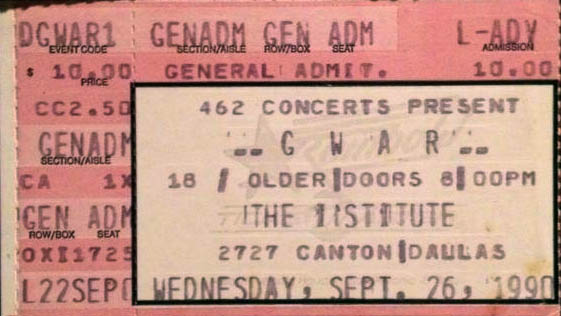
Deep Ellum Live, 1991-2004
For years, a revolving door of investors and aspiring club owners had targeted the intersection of Canton and Crowdus Streets. The spot seemed to be prime music venue real estate, but no one had managed to make it work for more than just under two years. Would anyone ever manage to evade the Canton Street jinx? One entrepreneur, a former booking agent for the club's two previous incarnations and a former partner in the Dallas Palladium, thought he could be the one to finally succeed where the others had failed. By his reasoning, the fatal flaw characterizing the earlier attempts was the lack of sufficient effort put into promotion: don't spend enough to promote your acts, and people won't come to see them. Consequently, he announced that a renewed effort would be invested into advertising. The new venue would also operate with more emphasis placed on its live music aspects and less on its function as a bar. There would of course be bartenders and alcohol on tap, but he and his co-owner would endeavor to keep the live music spirit as the dominant force in the new club while avoiding the pitfalls that had swallowed up all previous attempts.In February of 1991, following an interior remodel to the building, Jimmy Page [no relation] and his business partner Richard Gonzalez opened the new Deep Ellum Live for business. It would prove to be a hit, perhaps the biggest hit in south Ellum, hosting an army of powerhouse national acts across a full range of musical and entertainment genres for the next decade. Page's experiences with the Institute and the Venue, as well as with the Palladium before them, would prove to be pivotal in getting the new enterprise successfully off the ground. Finally, some three years and change after the opening of Tommy's Heads Up Saloon, it seemed that someone had found the winning formula for success on Canton Street. Deep Ellum Live remained in operation for thirteen years, becoming a go-to place for everything from jazz to indie rock to hip hop to blues to metal, and all styles in between. The Offspring, Ned's Atomic Dustbin, Nelly Furtado, Al Green, Queen Latifah, The Misfits, The Psychedelic Furs, Björk, George Clinton, Ministry, The Smashing Pumpkins, Suzanne Vega, 2 Live Crew, and a slew of other iconic acts all took the stage at Deep Ellum Live from early 1991 right up to its ultimate closure in late 2004 (and even thereafter, with a few scattershot shows being staged after the official closure). Not bad for a one-time auto parts warehouse that didn't even have adequate air conditioning.
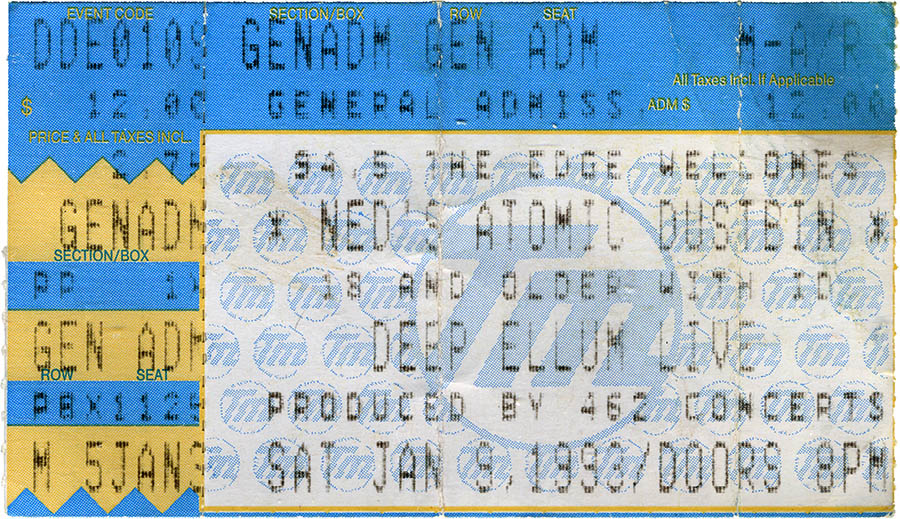
Epilogue - Canton Hall / The Studio at the Factory
The story of 2727 Canton doesn't end with the 2004 closure, however. Unlike the other one-time music destinations and record label locations being chronicled in this series, the story of this one picks up again in 2017 with yet another reopening. And although this series isn't intended to be about currently operating venues, I'm going to break format a bit and give a brief epilogue touching on what has happened with 2727 Canton Street in the intervening years. By 2016, rumors had begun to circulate about a planned reopening of the old Deep Ellum Live. The rumors were confirmed in August of that year, when Deep Ellum impresarios Clint and Whitney Barlow announced plans to retool and reopen the space as an event venue. In due time it would begin a new life as Canton Hall, with the name change reflecting the Barlows' intention to pitch the site as more of a space for private bookings than as a dedicated music club. Public shows and concerts would still be held on occasion, especially given that the floor space of the Hall hit the sweet spot between the smaller 7,500 square foot and larger 50,000 square foot capacities of the Barlows' other resurrected venues, Trees and the Bomb Factory. By 2021 the space would see another name change to The Studio at the Factory, done to complement the truncation of the Bomb Factory's name to just The Factory. As of this writing, 2727 Canton is being operated once again as an event hall. Despite that, the space's long associations, and the mark it once made in the local music scene, ensure that the Deep Ellum old-timers and those who came of age in the mid-1990s will always remember it as Deep Ellum Live.
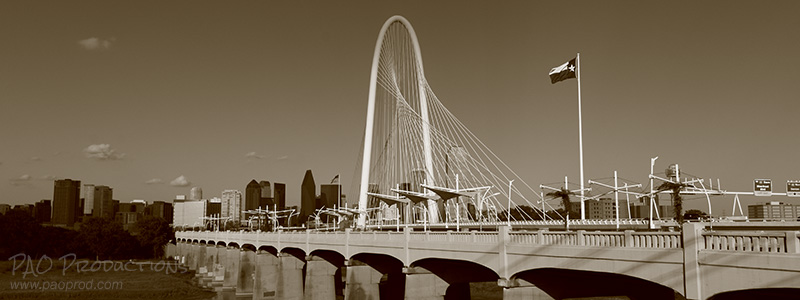
Awesome! Thanks Peter, for doing this and the research to get it right👏🏼👏🏼👏🏼